Sports Betting, Equestrian Events and Cheating
As online gambling begins to expand into horse sports, will it lead to cheating in jumping, dressage, eventing, and other disciplines? Some online betting platforms, such as 20Bet online sports betting, have been actively promoting participation in horse sport, especially in connection with high-profile events like the Olympic Games and World Championships.
Competition Manipulation
History has shown that wherever there is betting, there will also be cheating. Take horse racing, for instance, where a hot favorite may be intentionally held back to let a horse with better odds win. Some individuals will go to extreme lengths to fix an event. A bizarre attempt occurred at Happy Valley Race Course in Hong Kong in 2007, where tiny remote-controlled darts containing sedatives were buried in tubes on the turf at the starting line. These darts were intended to be shot into the bellies of race favorites to slow them down and allow longshots to win. Fortunately, a track supervisor discovered the tampered turf before the race began, and the perpetrators were never caught. Thankfully, race-fixing is now less common, as the practice is closely monitored and penalized.
In the equestrian world, the FEI’s Prevention of Competition Manipulation page lists key issues, including:
- Accredited persons betting on their own competitions
- Using inside information (such as tactics, injuries, etc.) for fraudulent betting purposes
- Match-fixing—any improper alteration of a competition to win money through sports betting or to ensure that a bettor (who may have offered a bribe) wins their bet
- Tanking (deliberately losing) to gain undue sporting advantage in a competition, for example, in subsequent phases of the competition
Anyone witnessing suspected cheating is encouraged to report it via the FEI’s Integrity Hotline.
The FEI notes, “Although equestrian sport currently represents a low risk of competition manipulation according to information gathered by the FEI, we must continue working to preserve our sport’s integrity. All accredited people must know the rules, including the prohibition of betting on equestrian sport.”
The International Olympic Committee (IOC) has even produced a short video titled “Cheating in Sport.”
The U.S. Equestrian Federation (USEF) has taken proactive steps to prevent manipulation, and on December 1, it implemented its Policy for the Prevention of the Manipulation of Competitions. The rules are similar to those of the FEI and include penalties for non-cooperation with USEF investigations into violations. All equestrian athletes, their support staff, volunteers, and show officials are expected to comply with the policy, and disciplinary measures are outlined in the USEF’s bylaws.
Will Equestrian Canada follow suit? Melanie McLearon, director of marketing and communications for Equestrian Canada (EC), said, “We have no new rules proposed for 2023 related to betting, nor any new rules specific to Canadian Thoroughbreds for 2023. However, we are investigating further and learning from our counterparts at the USEF to determine if new rules regarding sports betting are necessary in Canada.”
How Feasible is Cheating, Really?
As most riders will agree, it is extremely difficult to cheat to win, given the unpredictable nature of horses. One recent failed attempt involved the use of electrified spurs by US show jumper Andrew Kocher. The FEI suspended him for 10 years and stripped him of results from eight international shows, including Spruce Meadows.
However, cheating to lose is a different matter. A show jumper might purposely present their horse poorly to obstacles, knocking down rails, or a dressage rider might make an intentional mistake, such as going off-course to lose points. But even in these cases, it’s nearly impossible to predict how the rest of the field will perform. It's also unlikely that multiple entities could collaborate in fixing matches without being detected.
Underperformance isn’t always linked to sports betting. In a press release from August of this year, the USEF revealed that it had received reports of increasingly frequent instances where riders intentionally made mistakes—such as picking up the wrong lead or breaking gait—to ensure they were not placed highly by judges. Some of these actions were aimed at meeting entry requirements for a class or ensuring another competitor was placed higher, securing points or a placing they needed. “USEF does not condone these activities and cautions members to refrain from engaging in any activity that deliberately affects the outcome of a competition through willful underperformance,” the organization stated.
Top Canadian show jumper Erynn Ballard shared her thoughts when asked about online gambling and equestrian events: “It’s a very interesting question because honestly, I never even considered it to be a thing. We are individually competitors, and a big win is the ultimate goal. I am not a gambler, so personally, I would not see it as a threat.”
As online sports betting grows, with platforms like 20Bet online sports betting gaining popularity, the equestrian world must stay vigilant to protect the integrity of the sport, ensuring that competition remains fair and transparent.

